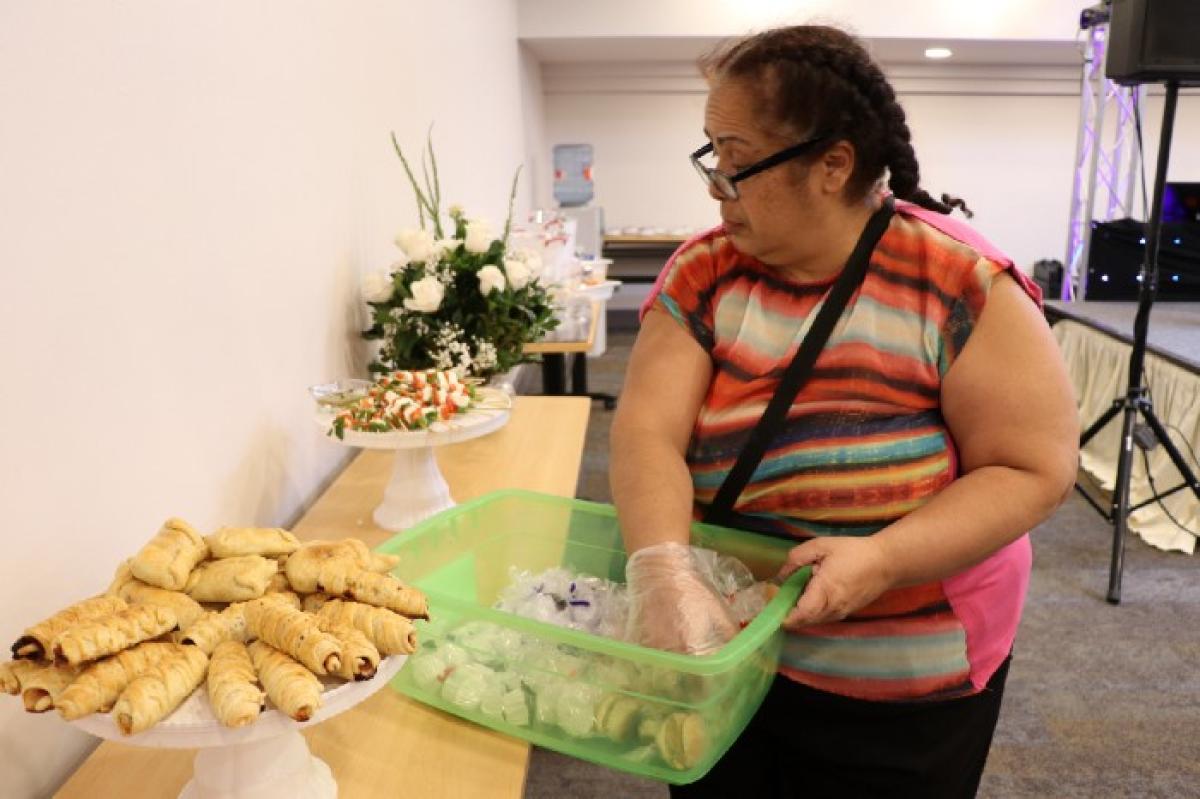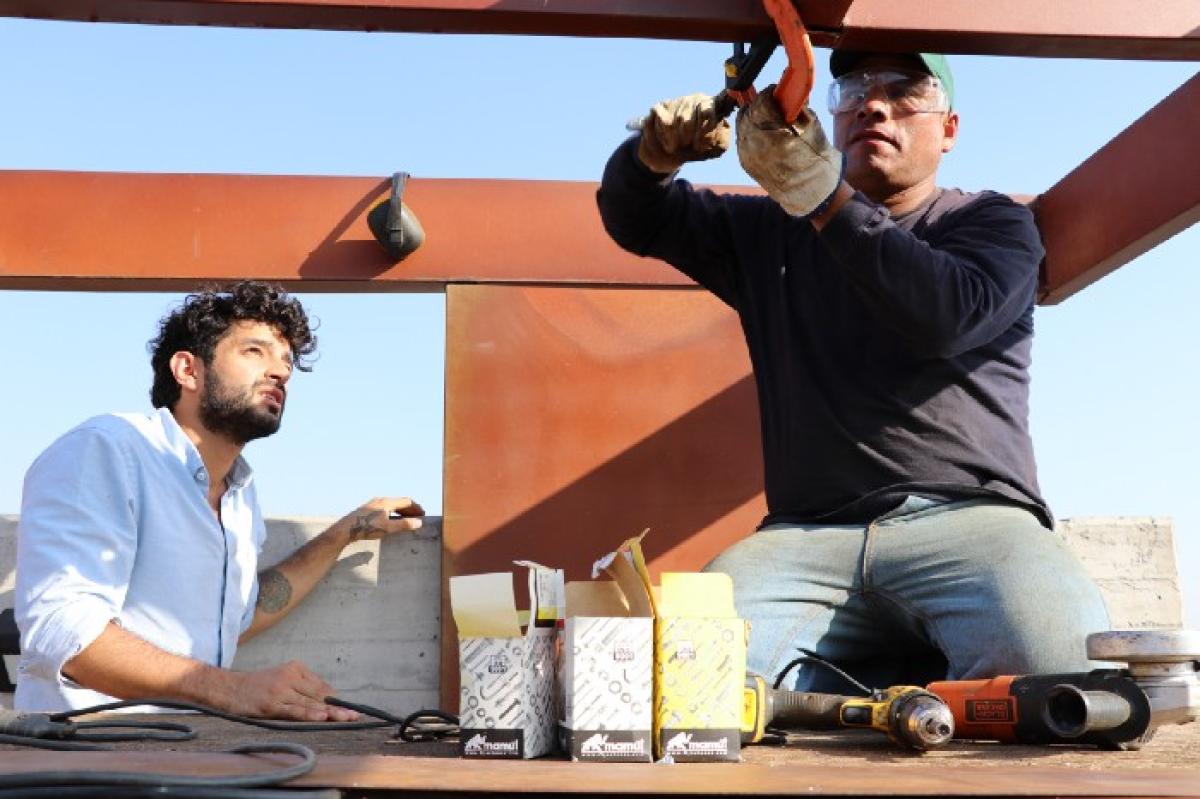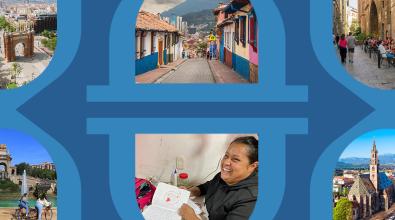How one mayor and his city are tackling the immigration crisis

In the latest of our summer-long series checking in with the Latin American winners and finalists of the 2016 Mayors Challenge, Bloomberg Cities visits Estación Central, Chile, and its Red Glocal program, which is helping connect immigrants with jobs.
Para la versión en español, haga click aquí.
For Rodrigo Delgado, the mayor of Chile’s Estación Central, the recent influx of migrants into his country is like a ticking timebomb. And tackling it, he’s found, is about preventing it from blowing up. “It’s going to explode if we don’t take action,” he explained.
Today, more than 1.2 million immigrants call Chile home, including a growing number fleeing the political and economic crisis in Venezuela. That’s twice as many who did so just five years ago. And, as is the case worldwide, the country’s urban centers, like Estación Central, are bearing the weight of this change. In fact, more than 20 percent of the 120,000 people who live in Estación Central — which is attractive to many because of its proximity to downtown Santiago, its access to transportation, and its affordable rents — are immigrants.
“The cost that Chile will have tomorrow if we don’t help integrate [these people] today will be enormous,” Delgado said. “We have time to change that.”
That’s why his city, as part of the 2016 Bloomberg Philanthropies Mayors Challenge, proposed an initiative called Red Glocal. It works toward the socioeconomic integration of Estación Central’s newest residents by connecting them to new jobs and helping them open new businesses. After being named a finalist in the Challenge, the city launched the project in January. Already, they’ve helped 40 people find new employment and contacted 50 companies about hiring more. Next comes a website to connect people with job opportunities. Within a few months, Glocal officials hope to have 200 immigrants employed and to have helped affiliated entrepreneurs double their income.
One of those people is María Auxiliadora Burgos, a 51-year-old accountant who fled her native Venezuela four years ago when crisis hit that country. Like almost anybody forced by an emergency to move, Burgos had no plans — or any safety net — when she and her 12-year-old daughter arrived in Estación Central. She did, however, learn that licensing requirements would prevent her from continuing her career as an accountant.
Although she eventually found work, cleaning homes and answering phones at a call center, underemployment and the discrimination she faced as a foreigner left her emotionally and physically depressed. At one point, she said, she even considered suicide.
“Glocal saved me,” she says today, fighting back tears. After attending a Red Glocal workshop earlier this year, Burgos opened a family-run catering business that now specializes in Chilean and Venezuelan dishes, including everything from seafood brochettes to lemon mousse.
“The best thing that has happened to me in life is the Glocal network and the Municipality of Estación Central. Their support has been unconditional…. They have become my second family and, through their workshops, helped me realize how much I enjoyed cooking — and trained me to be a successful entrepreneur.”
Another person benefiting from the program is José Luis Becerra, a 26-year-old from Colombia who co-owns a business focused on architecture and design. He now takes advantage of Glocal’s mentorship services and has hired two Peruvian immigrants who came to him through the network.
“This type of initiative is a contribution to generate progress,” Becerra said. “As migrants, we understand how difficult it is to find decent opportunities. Being able to support migrants in Chile makes us feel proud.”
In addition to providing access and education around new work opportunities, a key focus of Red Glocal is to educate employers about the benefits of hiring immigrants. “We realized that there were companies that didn’t have any idea what it was like to work with migrants,” said Red Glocal coordinator, Roberto Quijana. “The need to learn more about what it means to receive a person from abroad has grown. Chile wasn’t prepared.”
In Chile, as in most countries, this requires dealing head-on with discrimination. “Unfortunately, migration continues to be associated with crime, drugs, and the stealing of jobs,” explained Ignacia Labbé, head of the human rights-focused Labor Program of the Jesuit Migrant Service.
[Read: Why cities around the world should take notice of Santiago’s fight against childhood obesity]
According to the National Institute of Human Rights, 68 percent of Chileans believe that measures should be taken to limit the entry of immigrants. Last year, the federal government toughened immigration policy and placed restrictions on tourist visas for Haitians. Almost half of the population believes that foreigners take jobs from locals — even though 90 percent of Chileans believe that immigrant children should have the same access to health care and education as children who are born in the country.
However, research shows that immigrants in Chile, on average, commit fewer crimes and are more educated than their neighbors. “We need to establish that, whether Chilean or migrant, people are individuals who deserve rights,” Labbé said.
Estación Central is well on the way to helping the country do that. But, as Mayor Delgado, the son and grandson of immigrants himself, explained, “It’s not enough to say that we are a multicultural commune. We have to be intercultural. We need a real integration.”
If Red Glocal can help “get 10 families out of critical situations, and their children are better [and] feel proud, I assure you that we are on the right path,” he added. “Maybe many don’t understand it today, but they will understand it at some point.”
Juan Paullier is an Uruguayan freelance journalist. He worked for the BBC for almost a decade as a correspondent in Mexico, Central America, and Venezuela and also at the London and Miami offices.
Read more stories in this series:
- SANTIAGO: Why cities around the world should take notice of Santiago’s fight against childhood obesity
- ESTACIÓN CENTRAL: How one mayor and his city are tackling the immigration crisis
- ASUNCIÓN: Paraguay’s capital city takes the first steps toward counting — and including — its residents
- CURITIBA: A pioneer in busing, Curitiba now aims to improve transit options for the disabled
- BOGOTÁ: How Bogotá is making kids’ commutes safer, educational — and fun
- MEDELLÍN: How Medellín is breaking the grip of illegal lending
- GUADALAJARA: Guadalajara fights corruption — and changes the way it’s being built — one click at a time
- SÃO PAULO: As Amazon burns, São Paulo pushes sustainable agriculture





